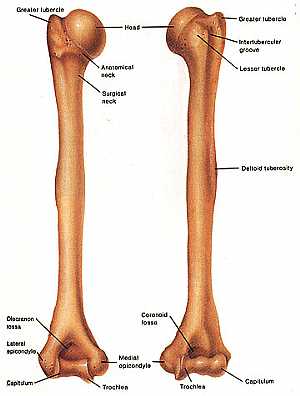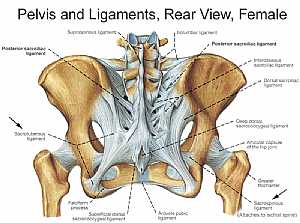Medical Insurance Articles › Medical health insurance › Social Security Disability Insurance – Steps to Ensure the Right Application Process
Applying for social security disability insurance can be overwhelming if the applicants are not aware of the specific requirements of the Social Security Administration (SSA). Around $143 billion is paid out each year to more than 11 million Americans who are unable to work because of a serious illness or impairment. The eligibility determination is a very stringent process that is mainly based on a complete medical record review of the applicant’s healthcare documentation. According to the SSA’s most recent annual report, they received approximately 2.7 million applications for the disability program in 2013, which was 1.9 million a decade earlier. Among the claims received from 2004 to 2013, only 36% was ultimately approved. Statistics are that about a quarter of the applicants are awarded benefits on their initial claim, 2% are approved on appeal, and another 11% are approved at the hearing level.
Denials Are Common for Many Reasons
Social security disability attorneys estimate that claims are denied very often, and to ensure approval for a legitimate claim, the application process has to be carefully done collecting and presenting all applicable medical records that would substantiate the claim. Many people may be eligible for both disability and SSI or supplemental security income benefits though they will have to meet additional resource and income limits to be eligible for the latter.
To qualify for social security disability insurance or SSDI, it is the onus of the applicant to provide the right documents to the right people at the appropriate time. In some cases, the applicants don’t meet the SSA’s disability requirements, mainly the condition that the disability that prevents the candidate from working “is expected to last one year or result in death.” In other cases, errors in filling up the application and lack of awareness of other documentation requirements also result in denied claims. SSA data also shows that 28% of final denials in 2013 were due to the impairment not being considered severe. 31% of claims were denied because the applicant was considered able to do other kinds of work.
Ensuring the Right Steps Are Taken
* It is vital to collect as many medical records of the applicant as possible before filing the claim. This will help to provide a clear idea of the applicant’s condition to the SSA from the very beginning so that there is no confusion or uncertainty regarding the specific illness or impairment.
* The medical records should clearly demonstrate the medical care received for the particular condition, and the fact that the care was provided regularly and recently.
* Reliable medical documentation will help reveal the gravity of the applicant’s condition and the impact it has on his/her daily life. The SSA gives great importance to the treating physicians’ opinions about the applicant’s physical or mental limitations.
* The applicant should ideally include along with the initial SSDI application a residual functional capacity form duly filled out by the treating doctor, and providing details about the applicant’s limitations and prognosis.
* Before applying, the applicant should consider his/her income because they cannot be involved in “substantial gainful activity.” In 2016, the SSA considers any earning more than $1,130 per month to be engagement in substantial gainful activity.
In case a disability claim is denied, the applicant can request an appeal within two months of the denial. The appeal process can be long drawn out, but if the claim is approved the applicant will receive retroactive benefits based on the initial filing date.
Social security disability benefits are paid as long as the applicant’s medical condition does not improve and he/she remains unable to work. The SSA will appraise the case at regular intervals as listed below to ensure that the claimant is still disabled. This process also involves a detailed review of the relevant medical records.
* Medical improvement expected: If the claimant’s condition is expected to improve within a particular time, the first review will be 6 -18 months after he/she started getting the disability benefits.
* Medical improvement possible: The case will be reviewed every 3 years if improvement in medical condition is possible.*
* Medical improvement not expected: In this case, the review will be about once in every 5 – 7 years.
If the disability benefits continue until the beneficiary’s full retirement age, they are automatically converted to retirement benefits.

Denials Are Common for Many Reasons
Social security disability attorneys estimate that claims are denied very often, and to ensure approval for a legitimate claim, the application process has to be carefully done collecting and presenting all applicable medical records that would substantiate the claim. Many people may be eligible for both disability and SSI or supplemental security income benefits though they will have to meet additional resource and income limits to be eligible for the latter.
To qualify for social security disability insurance or SSDI, it is the onus of the applicant to provide the right documents to the right people at the appropriate time. In some cases, the applicants don’t meet the SSA’s disability requirements, mainly the condition that the disability that prevents the candidate from working “is expected to last one year or result in death.” In other cases, errors in filling up the application and lack of awareness of other documentation requirements also result in denied claims. SSA data also shows that 28% of final denials in 2013 were due to the impairment not being considered severe. 31% of claims were denied because the applicant was considered able to do other kinds of work.
Ensuring the Right Steps Are Taken
* It is vital to collect as many medical records of the applicant as possible before filing the claim. This will help to provide a clear idea of the applicant’s condition to the SSA from the very beginning so that there is no confusion or uncertainty regarding the specific illness or impairment.
* The medical records should clearly demonstrate the medical care received for the particular condition, and the fact that the care was provided regularly and recently.
* Reliable medical documentation will help reveal the gravity of the applicant’s condition and the impact it has on his/her daily life. The SSA gives great importance to the treating physicians’ opinions about the applicant’s physical or mental limitations.
* The applicant should ideally include along with the initial SSDI application a residual functional capacity form duly filled out by the treating doctor, and providing details about the applicant’s limitations and prognosis.
* Before applying, the applicant should consider his/her income because they cannot be involved in “substantial gainful activity.” In 2016, the SSA considers any earning more than $1,130 per month to be engagement in substantial gainful activity.
In case a disability claim is denied, the applicant can request an appeal within two months of the denial. The appeal process can be long drawn out, but if the claim is approved the applicant will receive retroactive benefits based on the initial filing date.
Social security disability benefits are paid as long as the applicant’s medical condition does not improve and he/she remains unable to work. The SSA will appraise the case at regular intervals as listed below to ensure that the claimant is still disabled. This process also involves a detailed review of the relevant medical records.
* Medical improvement expected: If the claimant’s condition is expected to improve within a particular time, the first review will be 6 -18 months after he/she started getting the disability benefits.
* Medical improvement possible: The case will be reviewed every 3 years if improvement in medical condition is possible.*
* Medical improvement not expected: In this case, the review will be about once in every 5 – 7 years.
If the disability benefits continue until the beneficiary’s full retirement age, they are automatically converted to retirement benefits.
Article By: Jan Merrifield
Continuing Healthcare Checklist
Tips to find a Savvy Insurance Agent in Colorado
Kentucky Health Insurance – Choosing Between HMOs and PPOs
Understanding Your Ohio Health Insurance Coverage
Patio Umbrella - Beat the heat with Cool Patio umbrellas
How does insurance eligibility verification helps in reducing denials and the medical billing cycle
Improving Patient Collections – Medical Billing
Medical Insurance - Health Insurance Coverage & Plans Explained
The Top Five Health Insurance Plans
Cheap Health Insurance Plan - A Simple Way to Save Money
How to Find Affordable Health Insurance
Health Insurance Options & Free Clinics
How Many Homeowner Insurance Quotes Do I Need To Save Money?
Where To Find Cheap Health Insurance
ÛæÛá
ÛæÛá ÇáÇÑÖ
You are medical biller and are speaking with an insurance company regarding a denial of coverage for a particular patient Discuss the patient and the procedures provided with the insurance company
you are medical biller and are speaking with an insurance company regarding a denial of coverage for a particular patient discuss the patient and the procedures provided with the insurance company
medical insurance articles
ÎÑÇÆØ ÛæÛá
You are medical biller and are speaking with an insurance company regarding a denial of coverage for a particular patient Discuss the patient and the procedures provided with the insurance company
Medical insurance explained
ãæÞÚ ÛæÛá
ÛæÛá ÎÑÇÆØ
You are medical biller and are speaking with an insurance company regarding a denial of coverage for a particular patient Discuss the patient and the procedures provided with the insurance company
you are medical biller and are speaking with an insurance company regarding a denial of coverage for a particular patient discuss the patient and the procedures provided with the insurance company
medicalhealthinsurance
health insurance explained
articles on healthcare medical billing marketplace
ãæÞÚ ÇáÎÑÇÆØ
you are medical biller and are speaking with an insurance company regarding a denial of coverage for a particular patient discuss the patient and the procedures provided with the insurance company
health insurance coverages explained
article on health insurance by sunday pos
ãæÞÚ ÎÑÇÆØ
medical insurance article
health insurance plans explained
Free internet films
Ýí ÛæÛá
switch 2 health corp
Scenario 3 You are medical biller
mn article doctor supports own medical insurance plan
insurance policy attributes
ÎÑÇÆØ ÇáÇÑÖ
You are medical biller and are speaking with an insurance company regarding a denial of coverage for a particular patient Discuss the patient and the procedures provided with the insurance company
You are medical biller and are speaking with an insurance company regarding a denial of coverage for a particular patient Discuss the patient and the procedures provided with the insurance company
You are medical biller and are speaking with an insurance company regarding a denial of coverage for a particular patient Discuss the patient and the procedures provided with the insurance company
what do medical billers charge for PIP billing
umbrella beat
Scenario 3 You are medical biller and are speaking with an insurance company regarding a denial of coverage for a particular patient Discuss the patient and the procedures provided with the insurance company
Preferred provider denial of medical treatement of insured
medical insurance plans explained
medical billing denial scenarios
free full films
attributes of insurance policy
articles on medical insurance
articles how having medical insurance affects diet in children with diabetes
ÎÑÇÆØ ÈÏÞå ÚÇáíå
ÛæÛá ÇáÃÑÖ
You are medical biller and are speaking with an insurance company regarding a denial of coverage for a particular patient Discuss the patient and the procedures provided with the insurance company
You are medical biller and are speaking with an insurance company regarding a denial of coverage for a particular patient Discuss the patient and the procedures provided with the insurance company
You are medical biller and are speaking with an insurance company regarding a denial of coverage for a particular patient Discuss the patient and the procedures provided with the insurance company
You are medical biller and are speaking with an insurance company regarding a
You are medical biller and are speaking with an insurance company regarding a
Most Read
New Articles
Most Viewed
Most Downloads
 Basal Cell Carcinoma ("Rodent Ulcer" Type)
Basal Cell Carcinoma ("Rodent Ulcer" Type)
 Basal Cell Carcinoma (Histology-Morpheaform Type)
Basal Cell Carcinoma (Histology-Morpheaform Type)
 Basal Cell Carcinoma (Histology-Nodular Type - High power)
Basal Cell Carcinoma (Histology-Nodular Type - High power)
 Basal Cell Carcinoma (Histology-Nodular Type- High power)
Basal Cell Carcinoma (Histology-Nodular Type- High power)
 Skin
Skin
 Nervous System -- Basic
Nervous System -- Basic
 Brain anatomy
Brain anatomy
 Brain anatomy
Brain anatomy
 Brain anatomy
Brain anatomy
 Brain anatomy
Brain anatomy
 Head anatomy
Head anatomy
 Brain anatomy
Brain anatomy
eDoctorOnline.com does not provide medical advice, diagnosis or treatment.
© Copyright 2001-2022 eDoctorOnline.com
© Copyright 2001-2022 eDoctorOnline.com

 Nose anatomy
Nose anatomy Humerus bone
Humerus bone Eye anatomy
Eye anatomy Coronary arteries anatomy
Coronary arteries anatomy Female pelvic anatomy
Female pelvic anatomy Heart and lung anatomy
Heart and lung anatomy Bones and ligaments of the FEMALE Pelvis
Bones and ligaments of the FEMALE Pelvis Neck Anatomy
Neck Anatomy MidBrain anatomy
MidBrain anatomy Oral Cavity
Oral Cavity Stomach anatomy
Stomach anatomy Lung anatomy
Lung anatomy Basal Cell Carcinoma ("Rodent Ulcer" Type)
Basal Cell Carcinoma ("Rodent Ulcer" Type) Basal Cell Carcinoma (Histology-Morpheaform Type)
Basal Cell Carcinoma (Histology-Morpheaform Type) Basal Cell Carcinoma (Histology-Nodular Type - High power)
Basal Cell Carcinoma (Histology-Nodular Type - High power) Basal Cell Carcinoma (Histology-Nodular Type- High power)
Basal Cell Carcinoma (Histology-Nodular Type- High power) Skin
Skin Nervous System -- Basic
Nervous System -- Basic Brain anatomy
Brain anatomy Brain anatomy
Brain anatomy Brain anatomy
Brain anatomy Brain anatomy
Brain anatomy Head anatomy
Head anatomy Brain anatomy
Brain anatomy
Be the first one to comment on this article!